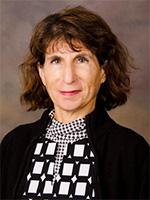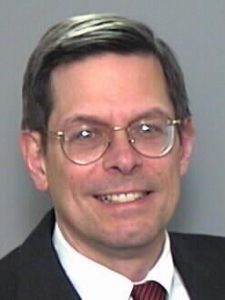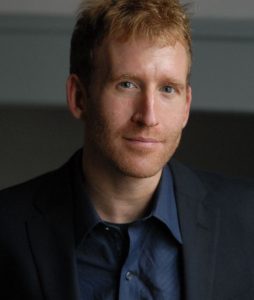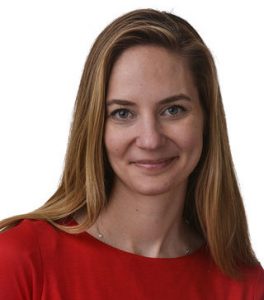Month: December 2015
Surge Pricing and Price Gouging: Public Misunderstanding as a Market Imperfection
2016: Sustainable Urbanization
Originally published on December 4, 2015
This conference was hosted by the World Bank, George Washington University (Institute for International Economic Policy), the NYU Marron Institute of Urban Management, the NYU Urbanization Project, and The Growth Dialogue to bring together academics and development practitioners to present and discuss the challenges of sustainable urbanization in developing countries. The core organizers were IIEP’s Rémi Jedwab, assistant professor of Economics and International Affairs at the Elliott School and the Department of Economics of George Washington University, and Harris Selod, Senior Economist with the Development Research Group of the World Bank. IIEP faculty who participated included Sabina Alkire, Paul Carrillo, Ram Fishman, James Foster, Arun Malik, Stephen Smith, and Anthony Yezer.
Addressing environmental change in urban areas is one of the greatest challenges of the 21st century, particularly given that the world is now more than half urban, and Africa and Asia are experiencing unprecedented rates of urban population growth. Cities themselves are a major contributor to this challenge, as they consume an enormous share of the world’s energy and emit large amounts of carbon dioxide. At the same time, they are heavily vulnerable to climate change and increasingly exposed to climate induced risks (including floods from rising sea levels and higher precipitation, destruction from stronger cyclones and storms, and periods of extreme heat and cold). The phenomenon of urbanization itself is also likely to be significantly altered by environmentally induced migration. Despite these risks, many cities have not created or implemented crucially needed policies to attenuate the causes of climate change and to effectively protect cities from its impacts.
TPP & the Internet: A Multistakeholder Perspective
Wednesday, December 2, 2015
Elliott School of International Affairs
1957 E Street NW
Washington, DC 20052
The Trans-Pacific Partnership (TPP) includes many provisions with significant effects on the Internet and in particular on cross-border information flows. As in many trade agreements, the provisions of TPP are complex and difficult to understand. The Institute for International Economic Policy — in concert with the Software and Information Industry Association (SIIA) and the Internet Policy Forum of the Internet Society – DC Chapter — is hosting a breakfast discussion of the cross-border data flow provisions, focusing in particular on their impact on the free flow of information between the 12 nations that today comprise some 25% of global Internet users. IIEP is excited to host Fanny Hidvégi, International Privacy Fellow at EPIC, Mark MacCarthy, Vice President of Government Affairs at the Software and Information Industry Association, Peter Maybarduk, director of access to medicine and information at Public Citizen, Sanford Reback, Director of Global Public Policy at Akamai, and Susan Aaronson, IIEP affiliate and International Affairs professor at the George Washington University, will discuss the impact of the Trans-Pacific Partnership on Internet governance. Tracey D. Samuelson of APR Marketplace will moderate.
Speakers

Susan Aaronson
IIEP Affiliate and International Affairs Professor, GWU
Susan Ariel Aaronson is Research Professor at The George Washington University’s Elliott School of International Affairs and the former Minerva Chair at the National War College. She teaches courses in international trade issues; digital trade; and corruption, development and good governance. She directs a fellowship fund for students working on internet issues, the eBay Policy Scholars, and has organized several seminars on Internet issues and human rights metrics. While at GWU, Aaronson has received grants from the MacArthur, Ford, Swiss National Science Foundation and Ford Motor Company for her work on internet freedom and trade, corruption, and business and human rights. Her current research focuses on malware, trade and trust; the WTO and conflict; and repression, civil conflict and socio-economic outcomes.

Fanny Hidvégi
International Privacy Fellow, EPIC
Fanny Hidvégi is an International Privacy Fellow at the Electronic Privacy Information Center (EPIC). She graduated from law school (Eötvös Loránd University, Budapest) in 2010. During university studies she spent one academic year at the University of Florence on an Erasmus Scholarship. After graduation she worked at the Consumer Protection Section of the Hungarian Competition Authority and, later, in a law firm specialized in the field of unfair commercial practices. From 2012 until 2015, she worked as the Head of the Data Protection and Freedom of Information Program of the Hungarian Civil Liberties Union, where her responsibilities varied from strategic litigation through drafting policy papers until representing the HCLU in the media. One of the most important privacy projects she has been involved with is the fight against the national data retention law in Hungary.

Mark MacCarthy
Senior Vice President, Public Policy, SIIA
Mark MacCarthy directs SIIA’s public policy initiatives in the areas of intellectual property enforcement, information privacy, cybersecurity, cloud computing and the promotion of educational technology. He is also an adjunct faculty member at Georgetown University, where he teaches courses in information privacy and tech policy in the Communication, Culture, and Technology Program, and courses in political philosophy in their Philosophy Department. His previous public policy experience includes senior positions with Visa, Inc., the Wexler Walker Group and Capital Cities/ABC and the Energy and Commerce Committee of the U.S. House of Representatives. He holds a Ph.D in philosophy from Indiana University and an MA in economics from the University of Notre Dame.

Peter Maybarduk
Public Citizen
Peter Maybarduk directs Public Citizen’s Access to Medicines and knowledge economy group, which helps partners around the world overcome high-price pharmaceutical monopolies and secure the benefits of science, technology and culture for all. Maybarduk is an intellectual property expert and presently a visiting fellow with the Information Society Program at Yale Law School. Maybarduk’s work has yielded HIV/AIDS medicine price reductions, new state access to medicines policies and global shifts toward anti-counterfeiting policies that safeguard generic competition. His analysis and advocacy have been instrumental in developing widespread opposition to harmful measures in the proposed Trans-Pacific Partnership. Maybarduk’s work for public health and an open knowledge economy has been covered in The New York Times, The Wall Street Journal, The Times of India, The Washington Post, The Guardian and other major papers. Read Public Citizen’s recent profile of Maybarduk and his work.

Sanford C. Reback
Director, Global Public Policy, Akamai
Sanford Reback, Director of Global Public Policy at Akamai Technologies, has more than 25 years of policy, business, and legal experience in the technology sector. He served as Deputy General Counsel for Policy at UUNET Technologies, then the world’s largest Internet service provider (ISP); Senior International Counsel at MCI, then a Fortune 100 company; and a senior executive at two venture-backed technology companies. In the Executive Office of the President at the U.S. Trade Representative, Reback helped negotiate NAFTA, the World Trade Organization agreements, and several international technology agreements. Immediately prior to joining Akamai, he was Senior Technology Analyst and Director of Global Business at Bloomberg Government. Reback holds a B.A. in political science from Stanford University, a J.D. from Harvard Law School, an M.P.A. from Harvard’s Kennedy School of Government, and was a Fulbright Fellow in London.

Tracey D. Samuelson
Reporter, Marketplace Radio
Tracey D. Samuelson is a staff reporter for APM Marketplace focusing on business, finance, and technology. Samuelson’s stories have aired on NPR’s Morning Edition, All Things Considered, Planet Money, and APM’s Marketplace, and in print for the Christian Science Monitor, New York Magazine, Global Post and other publications.
“Crimes against Morality: Unintended Consequences of Criminalizing Sex Work” (Trade and Development Workshop)
Lisa Cameron (with Jennifer Muz and Manisha Shah)
Monash University
Tuesday, December 1, 2015
12:30 to 2:00pm
